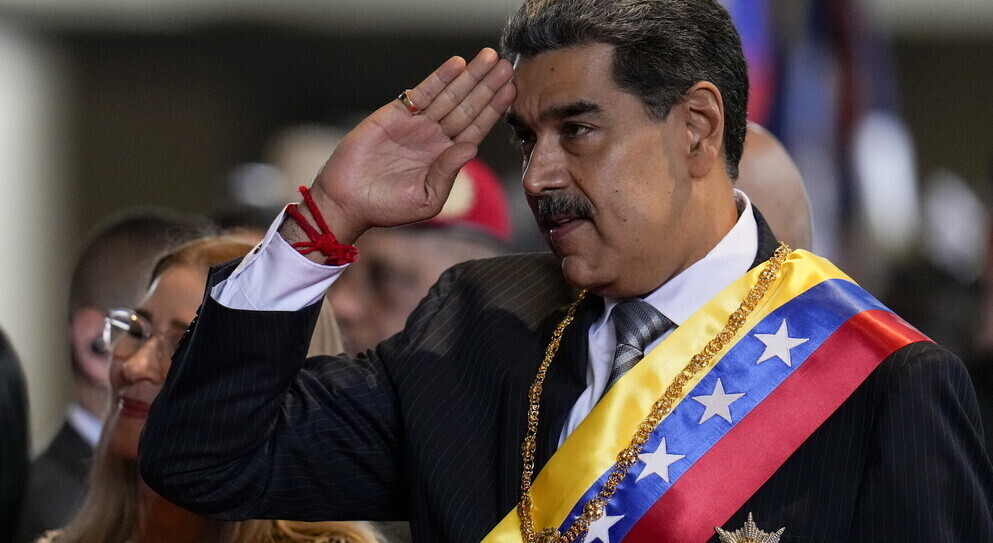Gonzalo Himiob Santomé, director of Foro Penal: “To date in Venezuela we have registered 1,687 political prisoners. Citizens used to force countries to exchange prisoners or influence negotiations that would not be accepted”
The disappearance in Venezuela of Alberto Trentini, a 45-year-old Venetian cooperator, who had arrived there on 17 October on a mission with the NGO Humanity and Inclusion to assist the disabled, was reported two months after his arrest, almost at the same time as another clash is taking place between the Maduro regime and the Italian government. A few days ago, Caracas imposed a restriction on the staff of the embassies of Italy, France and the Netherlands to no more than three, which also arrived in France and the Netherlands, with consequent orders to the other diplomats and staff members to leave the country within forty-eight hours (an order with surreal implications, given that diplomats are also forbidden to go further than 40 kilometres from the embassy, but the airport is beyond that authorised range of movement). Yesterday, Foreign Minister Antonio Tajani, like his French counterpart, summoned the Venezuelan chargé d’affaires to Italy in protest. The European Union made a formal protest.
In the meantime, not only the charges against Trentini are still unknown, but also where he is being held. ‘We are very tried. I have not heard from my son for two months. He is now a hostage there, but he is only a pawn,’ the mother said. ‘His case was reported to us recently, on 14 January 2025,’ Gonzalo Himiob Santomé, director of Foro Penal, an NGO set up 22 years ago as a response to the beginning of the Chavista regime’s destruction of the rule of law, confirms to The Sheet. Since then, the NGO has freely represented more than 15,000 victims of human rights violations. ‘We were told he was arrested on 15 November 2024, but the delay in reporting makes it difficult to know his current situation,’ says Santomé. ‘It is clear that he must have already been brought before a court, certainly one with special jurisdiction over terrorism, but to date it is not known where he is being held or what charges have been brought against him.’
ome suspect that Trentini may have written things critical of the regime on his social networks, and that as soon as he arrived in Venezuela he had already started to report a hostile climate, but at the moment there is still no concrete evidence to understand what happened to him, or whether he is simply yet another case among the more than 150 foreigners the Maduro regime says it is holding. ‘We believe the figures provided by the government are not accurate,’ Santomé explains. ‘To date in Venezuela we have registered 1,687 political prisoners. Of these, we have confirmed that 26 are foreigners and 31 are Venezuelan citizens with other nationalities. We have Colombians, Ecuadorians, Americans, Uruguayans, Chileans, and then French, Ukrainians, Germans, Spaniards and Italians. Ten detainees are Italian or Venezuelan/Italian’. But what does Maduro want to achieve with this hostage policy? ‘On other occasions, the detention of foreign citizens or those with dual nationality has been used as a means to influence the Venezuelan government’s political negotiations with other countries. According to our parameters, these citizens are used as hostages, to force countries to exchange prisoners or to force them to accept terms or conditions in such political negotiations that would not normally be accepted’.
The Venetian Trentini may currently be in the custody of the Dgcim, Maduro’s military counter-intelligence. And there are specific differences in the use of repression between the Dgcim, the Sebin intelligence service, the Faes police special teams, the National Guard, and other structures. The Dgcim ‘is one of the strictest repressive bodies’, Santomé explains to the Foglio. ‘However, our report indicates that his original arrest was carried out by the Bolivarian National Police Pnb, which does not mean that he cannot now be detained at the Dgcim. One of the most serious problems we are facing is that, in these cases, the authorities refuse to recognise the detention, whereabouts or destination of foreign detainees. I repeat: we do not know where Trentini is being held right now’.
Giorgia Meloni’s Italian government has not recognised Maduro’s proclaimed electoral victory, and like other European countries the climate of hostility between Rome, Brussels and Caracas has increased, but what might Venezuela want in exchange for Trentini’s release? ‘We don’t know. And in order for us to know, it is essential that Trentini’s access to his family and friends be respected, that he be informed about the status of his case and his place of detention, that he be allowed to appoint a lawyer of his choice for his defence, and that in any case the Italian consular representation be guaranteed to be able to visit him and take care of him’.
